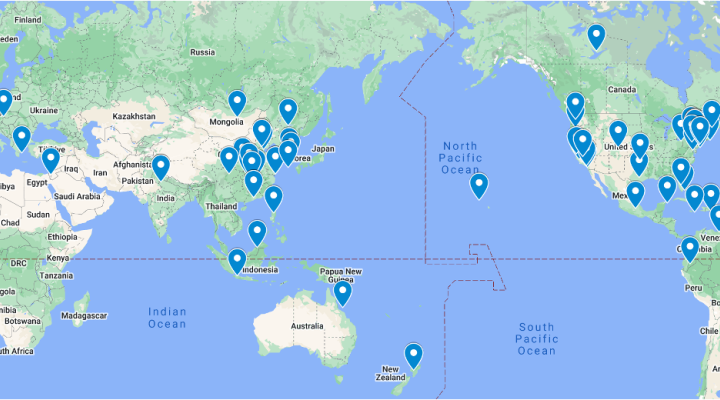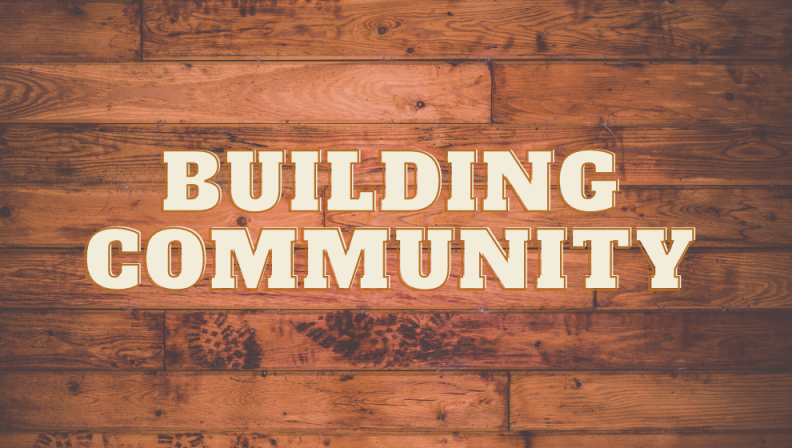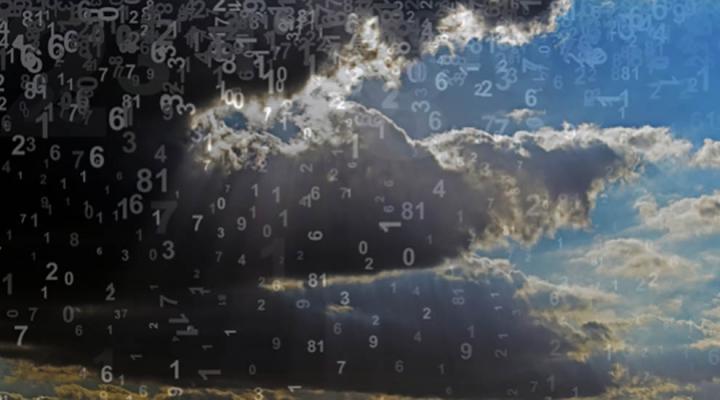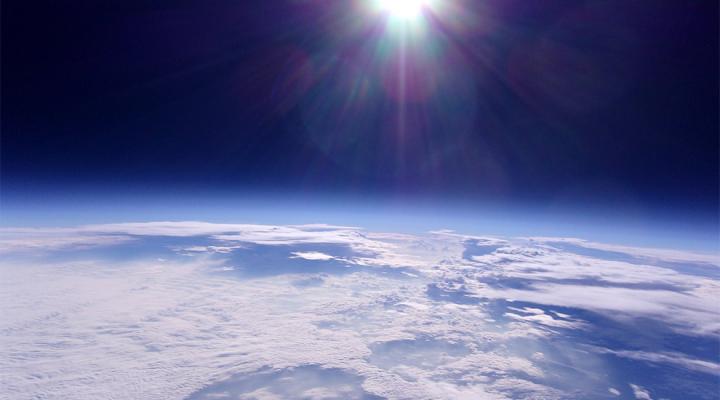By Carolyn Headlam
Forged in the Fall of 2019, IDEEAS (pronounced “ideas”) is an independent working group dedicated to Inclusion, Diversity, and Equity in Earth and Atmospheric Sciences, and to building community. Self-selected from the full cross-section of the department, IDEEAS’ members, or IDEEAS-ers, comprise students, staff, researchers, faculty, and emeriti. We encourage alumni participation and invite you to e-mail Carolyn Headlam (ch339@cornell.edu) for information about how to get involved.
As post-doctoral associate Junle Jiang recounts, IDEEAS was formed to learn with a group that shares common ideals, educate ourselves on inclusive practices, and create a more visible, equity-focused culture in the department, with the experiences and perspectives of our personal and professional communities in mind. Another IDEEAS-er, graduate student Paula Bürgi, stresses the importance of a “non-hierarchical group within the very hierarchical setting of academia. It is a space to address important conversations and then take appropriate [action] within the context of our department.” Professor Natalie Mahowald, the departmental Leader for Diversity and Inclusion, “joined for two related reasons: to build more community within EAS, and to build a more inclusive, diverse and equitable environment.” Early discussions highlighted ableism and the lack of representation of racial minorities, women and LGBTQ+ identifying individuals in STEM. Finally, IDEEAS provides a social outlet and complements established department traditions such as Snee Teas, which are brief, informal gatherings to enjoy tea, coffee, and conversation with members of the Earth and Atmospheric Sciences (EAS) community.
IDEEAS’ mission is to foster inclusion, belonging, and community in EAS among students, administrative staff, research staff, faculty, professors emeriti, and alumni. We actively promote diversity, equity, inclusion, and access as core values. We promote these values by bringing equity, diversity, and inclusion learning opportunities to the EAS community and create frameworks to ensure equitable access to department educational, research, and professional opportunities. We will continue to foster an environment to cultivate respect for diverse backgrounds and perspectives.
IDEEAS is not a committee; we are a collective. We believe that, irrespective of rank or role, every member of the department community has the capacity to practice leadership. As such, we lead by action. Each IDEEAS project or initiative is organized around an action team, who collectively carry out a community-informed vision of the culture we would like to co-create with the rest of the department. We have collaborated with academic leadership, including our departmental Leader for Diversity and Inclusion, Natalie Mahowald, and our Directors of Graduate Study, Matt Pritchard and Toby Ault, to align our programming and recommendations with strategic department objectives. Professor Emeritus Rick Allmendinger, former Associate Dean for Diversity, Faculty Development, and Mentoring for the College of Engineering, serves in an advisory role. IDEEAS has also worked with student leadership, including the Snee Graduate Organization (SGO), the Cornell Chapter of the American Meteorological Society (CCAMS) and the Earth and Atmospheric Sciences Student Association (EASSA), to reach the broader student networks within our community. For example, IDEEAS and SGO, in partnership with the Directors of Graduate Study, have introduced student feedback of their advisors into the annual graduate Student Progress Review (SPR) process. IDEEAS thus has the potential to serve as a nexus of communication across the department hierarchy to help implement community-informed and evidence-based solutions.
We strive to enact impactful, sustainable culture transformation within EAS. This includes how we communicate internally as a department and how we define our priorities as a community. Functionally, EAS is a fragmented department. Earth and Atmospheric Sciences is small and spans the College of Engineering and the College of Agriculture and Life Sciences (CALS). We offer degrees in two graduate fields and serve students from three undergraduate colleges, including Arts & Sciences, the original home of the geology department. The two "sides” of our department – solid earth and atmospheric – formally merged two decades ago, and while it has been 20 years, in many ways we operate as two entities, rather than as one EAS. IDEEAS and the formal department leadership are currently taking intentional steps to foster cohesive, resilient community, greater than the sum of its predecessors.
Culture is a living thing. It can be nourished, cultivated, changed, and inculcated. While the geosciences are still among the least diverse STEM fields, IDEEAS acknowledges that the department leadership has committed to reversing this trend in EAS. As we diversify our faculty, staff, and student body in the coming years, we will most assuredly have a more complex collection of identities and perspectives. Now more than ever, it is important we implement intentionally inclusive practices and look to our values to create the cohesion that our myriad lived experiences may challenge. The IDEEAS working group believes that during times of crisis (e.g., COVID-19) and transition, we draw strength from community. Our connections sustain us, and fostering these connections requires that we take the time to appreciate and understand each other’s stories and the unique paths we’ve travelled. It is not enough to recruit a more diverse faculty or student body; EAS must build our collective capacity to meaningfully engage with a more diverse department and anticipate the needs of people whose backgrounds are markedly different from those of the populations we’ve historically served. As one IDEEAS-er remarked, “A historically white community needs to actively educate themselves on inclusive practices and anti-racism so that people of all identities feel like they have joined a community who [embraces] them as people.”
In IDEEAS, and in EAS, we strive to be good department citizens. Good citizens create caring community, while valuing the collective and individual experiences of all members. We recognize the multiple identities a person may claim, including their gender, race, ethnicity, spiritual practice, national origin, ability status, primary language, and sexuality. We acknowledge that these facets interact to create experiences both shared (by those with similar facets) and unique to the individual. We recognize that a person’s identities are not mere abstractions, but meaningfully impact one’s path to and through Cornell, and the world at large. We give ourselves the space to stumble and try not to hold it against each other when we inevitably make mistakes. More broadly, good citizens critically evaluate our environment and place current events in their appropriate social, historical, and economic context.
To that end, in June 2020, IDEEAS hosted two facilitated community conversations. Our Juneteenth “Community Conversation on Systems Thinking: From Structural Racism to Geosciences” was co-facilitated by Fabina Benites, Executive Director of the Ithaca non-profit Multicultural Resource Center (MRC), and Mike Bishop, Director of Student Leadership of Cornell’s Einhorn Center for Community Engagement. The discussion focused on how broader issues intersected with geoscience and generated solution-focused dialogue among those in attendance. Post-doctoral associate Douglas Hamilton, a member of the Community Conversations action team, noted that “[t]he role of education was a core theme in all the break out discussions I had….Not just the historical misappropriation of cultural artifacts by western white civilizations, but how many specimens (even recently) will credit the, normally white, lead investigator. There is no reference to the local community where they were collected, or supporting staff, without whom the specimens would not exist and who are normally not white.” Furthermore, “[g]oing to museums as a kid, I could see my race represented in natural history, but have not stopped to consider that other races may not see themselves as part of this field from a young age. Representation is important and decolonizing my research (particularly when I get to teach more) is one strategy.” These comments demonstrate how IDEEAS provides a space for constructive dialogue that has the power to bridge self-awareness and transformative action.
Both the importance and dearth of role models from marginalized backgrounds were emergent themes. Terry Jordan, J. Preston Lewis Professor of Engineering, remarked that, paradoxically, “[t]he majority of EAS students/post-docs have not had the opportunity to personally interact in their upper level educational programs with black/brown people of U.S. origin. It is a condemnation of our lack of diversity. It is also a glimmer of hope, in that perhaps [our students and post-docs] haven’t established bad habits that need to be broken.” Still, it is difficult to know how welcoming members of historically underrepresented groups might find spaces that were constructed for and by members of the dominant class. As Douglas shared, “I never had any queer [LGBTQ+] role models in science at High School (or growing up at all really). They are still extremely hard to identify in science. In high school I was told that science wasn't for those like me by all my teachers (I kid you not), I was told I should focus on art or go into theater….It took me 10 years to build up the confidence that I could in fact do science.” This painful personal account encourages us to be mindful of how brief, often subtle everyday interactions may deter talented scientists and negatively impact both diversity and a sense of true belonging, or the feeling that you are free to be your full, authentic self in your community.
These everyday slights were also referenced the following week during “Uncovering Unconscious Bias: What it Is and Why it Matters,” facilitated by Anthony Sis, a Diversity and Inclusion Training Specialist in Cornell’s Department of Inclusion and Workforce Diversity (DIWD). Graduate student Patricia MacQueen, another member of the Community Conversations action team, noted that “for many people these conversations were the first opportunity they had had to talk about issues of race in a department setting, and I got the sense that people were relieved to have the opportunity to discuss these issues openly. Additionally “[w]e were all quite comfortable talking about Earth Science things, and I appreciated that [Anthony] acknowledged that we have a comfort zone, and that we're capable of stretching beyond it.” With these discussions, IDEEAS aims to increase comfort with conversations about systemic inequities by embracing the discomfort that may arise as the first step towards meaningful transformation. Many people may experience guilt or shame, or may be hesitant because they do not want to cause tension in such a small community where their professional trajectories may be impacted. Future conversations may focus on how to respectfully approach conflict and what can be done differently to move forward as colleagues following a strained dynamic.
IDEEAS is committed to holding space for further reflection, purposeful interactions, and engagement across all roles, levels, and sub-fields in the department. Some of our series events are listed below. Currently, all events are virtual, via Zoom or other online platforms.
- JEDI Journal Club – biweekly discussion of academic papers, podcasts, popular articles, and other media centered around issues of Justice, Equity, Diversity, and Inclusion (JEDI).
- Community Conversations – monthly facilitated discussions (during the Fall and Spring semesters) about diversity, equity, and inclusion in both the geosciences as a discipline and EAS as a department.
- Semester Kickoffs – beginning-of-semester social events to share experiences with each other and solicit feedback from the EAS community about what IDEEAS should work on in the future.
- First Friday Happy Hours—monthly informal community-building event.
- Trivia Nights – periodic trivia contest with questions about the geosciences, popular culture, and hallmarks of EAS culture.
IDEEAS welcomes alumni participation as we continue to expand our coalition of EAS, Cornell, and community partners. For more information, suggestions, or inquiries, please contact Carolyn Headlam (ch339@cornell.edu).
IDEEAS Working Group
Inclusion, Diversity, and Equity in EAS
Fostering community, belonging, and connection in EAS and beyond





